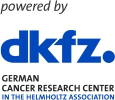Speaker
Description
Introduction and aim: The translation of new radiotracers into clinical application use is a complex and often daunting process. The core function of a multidisciplinary team is to bring together professionals with expertise in several areas to expand diagnostic and treatment options for patients. One such tracer, [89Zr]Zr-DFO-trastuzumab, has been successfully implemented in other countries, till now it had not been introduced in Germany. This abstract outlines some considerations of the practicalities of the implementation of [89Zr]Zr-DFO-trastuzumab in Germany.
Methods: Professionals across various disciplines worked together to establish the clinical application of [89Zr]Zr-DFO-trastuzumab, starting from the initial assessment of medical need through to individual manufacturing in accordance with the German Pharmaceuticals Act (§ 13(2b) AMG). Ongoing consultation with local and federal regulatory authorities, along with knowledge exchange through networking with experienced teams routinely producing radiolabelled monoclonal antibodies was undertaken.
Results: The manufacturing of [89Zr]Zr-DFO-trastuzumab was successfully established in compliance with GMP standards, meeting all defined quality specifications. Close communication with regulatory authorities such as the Paul Ehrlich Institute and Federal Institute for Drugs and Medical Devices helped resolve several key questions throughout the process to prepare [89Zr]Zr-DFO-trastuzumab also as an investigational medicinal product (IMP) for prospective clinical trials. It was agreed that no preclinical studies were required due to the extensive supporting literature, and because Herceptin could be replaced with clinically approved biosimilars such as Ontruzant. Regulatory discussions also addressed aspects such as the required time point for sterility testing, and the adjustment of the drug product’s shelf life from the initially proposed 72 hours to 24 hours in accordance to the chosen method of dispensing.
Conclusion: Early engagement with regulatory authorities and experts in the field proved crucial in positively shaping the manufacturing process of [89Zr]Zr-DFO-trastuzumab, ensuring the reliable production of a safe drug product and administration to patients.
| Research type | Translational research |
|---|

